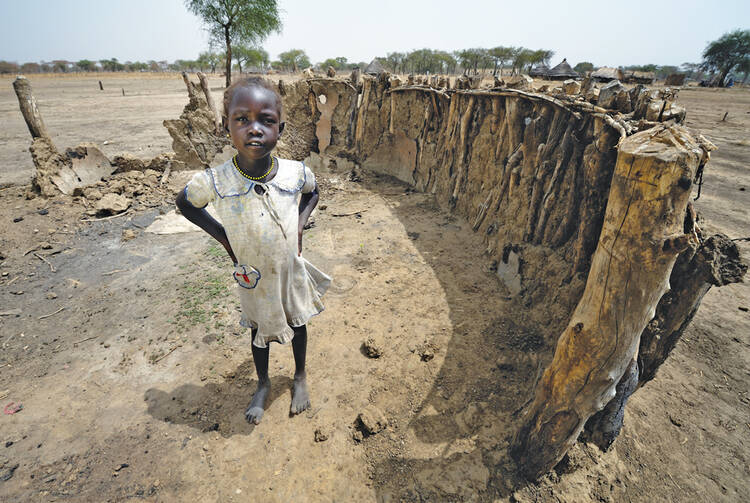The number of people living in extreme poverty around the world has sharply declined over the past three decades, but in 2010 it still included roughly 400 million children, according to a new World Bank analysis that for the first time gives an in-depth profile of the poorest people in the world.
The report, released on Oct. 10, found that 721 million fewer people lived in extreme poverty—defined as under $1.25 a day—in 2010 compared with 1981. But it also concluded that a disproportionate number of children were among them. Children accounted for one in three of the 1.2 billion people living in extreme poverty around the world. In low-income countries, the percentages were even worse, with half of all children living in extreme poverty.
“We have witnessed a historic movement of people lifting themselves out of poverty over the past three decades, but the number of children living in poverty alone should leave no doubt that there remains much work to do,” said Jim Yong Kim, president of the World Bank Group. “We can reach our goals of ending poverty and boosting shared prosperity, including sharing that prosperity with future generations, but only if we work together with new urgency. Children should not be cruelly condemned to a life without hope, without good education and without access to quality health care. We must do better for them.”
World Bank analysts also found that the poor in 2010 were as badly off as they were in 1981, with the exception of poor people in India and China. The “average” poor person in a low-income country lived on 78 cents a day in 2010, compared with 74 cents a day in 1981.
The report, said William O’Keefe, vice president for advocacy at Catholic Relief Services, “documents the success of the global fight against poverty to date and the challenge ahead.” As in the United States, he said, “Poverty around the world is increasingly a blight on children.
“Catholic Relief Services is expanding successful and innovative agriculture, nutrition and health efforts that will help poorer children in poor countries reach their potential. But we can’t help 400 million children on our own.
“The Holy Father is calling Catholics to confront global poverty, and that means in part pushing our government here to do more,” O’Keefe added. “The cynical politics of shutdown are an unworthy distraction from helping poor children around the world and here.”
The World Bank’s analysis underscores the difficulty of reaching its goal to end extreme poverty by 2030. While poverty reduction in recent years moved significantly in middle-income countries like China and India, low-income countries showed much slower progress. Overall extreme poverty has declined, but the world’s 35 low-income countries—26 of which are in Africa—registered 100 million more extremely poor people than three decades ago. In 2010, 33 percent of the extreme poor lived in low-income countries, compared to 13 percent in 1981.
The report also calculated that the amount of money needed every year to lift more than a billion people out of extreme poverty would be $169 billion in 2005 dollars—half the projected cost in 1981.
The extreme poor, who are concentrated in rural areas, also continue to lag significantly behind in access to basic services. Only 26 percent of the poor had access to clean water in 2010, compared with 56 percent among those living above the $1.25 poverty line. Meanwhile, fewer than half—49 percent—of the extreme poor had access to electricity. And while 61 percent of those above the poverty line of $1.25 had access to basic sanitation, just 20 percent of the extreme poor had access to similar services, the report showed.








